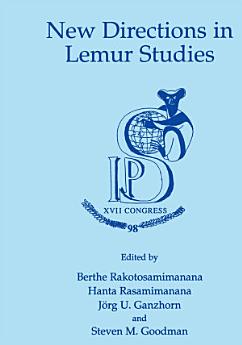New Directions in Lemur Studies
Berthe Rakotosamimanana · Hanta Rasamimanana · J. Ganzhorn · Steven M. Goodman
ডিচে ২০১২ · Springer Science & Business Media
ইবুক
295
পৃষ্ঠা
reportমূল্যাংকন আৰু পৰ্যালোচনা সত্যাপন কৰা হোৱা নাই অধিক জানক
এই ইবুকখনৰ বিষয়ে
Over the course of the past decade, there has been an enormous augmentation in the amount of information available on the lemurs of Madagascar. These advances are closely coupled with an increase in the number of national and international researchers working on these animals. As a result, Madagascar has emerged as one of the principal sites of primatological studies in the world. Furthermore, the conserva tion community has a massive interest in the preservation of the natural habitats of the island, and lemurs serve as one of the symbols of this cause. Between 10 and 14 August 1998, the XVIIth International Primatology Society (IPS) Congress was held in Antananarivo, Madagascar. For a country that about a decade ago was largely closed to foreign visitors, this Congress constituted a massive event for the Malagasy scientific community and was assisted by about 550 primatolo gists from 35 different countries. Naturally, given the venue and context of the Con gress, many of the presentations dealt with lemurs and covered a very wide breadth of subjects.
এই ইবুকখনক মূল্যাংকন কৰক
আমাক আপোনাৰ মতামত জনাওক।
পঢ়াৰ নির্দেশাৱলী
স্মাৰ্টফ’ন আৰু টেবলেট
Android আৰু iPad/iPhoneৰ বাবে Google Play Books এপটো ইনষ্টল কৰক। ই স্বয়ংক্রিয়ভাৱে আপোনাৰ একাউণ্টৰ সৈতে ছিংক হয় আৰু আপুনি য'তে নাথাকক ত'তেই কোনো অডিঅ'বুক অনলাইন বা অফলাইনত শুনিবলৈ সুবিধা দিয়ে।
লেপটপ আৰু কম্পিউটাৰ
আপুনি কম্পিউটাৰৰ ৱেব ব্রাউজাৰ ব্যৱহাৰ কৰি Google Playত কিনা অডিঅ'বুকসমূহ শুনিব পাৰে।
ই-ৰীডাৰ আৰু অন্য ডিভাইচ
Kobo eReadersৰ দৰে ই-চিয়াঁহীৰ ডিভাইচসমূহত পঢ়িবলৈ, আপুনি এটা ফাইল ডাউনল’ড কৰি সেইটো আপোনাৰ ডিভাইচলৈ স্থানান্তৰণ কৰিব লাগিব। সমৰ্থিত ই-ৰিডাৰলৈ ফাইলটো কেনেকৈ স্থানান্তৰ কৰিব জানিবলৈ সহায় কেন্দ্ৰত থকা সবিশেষ নিৰ্দেশাৱলী চাওক।




